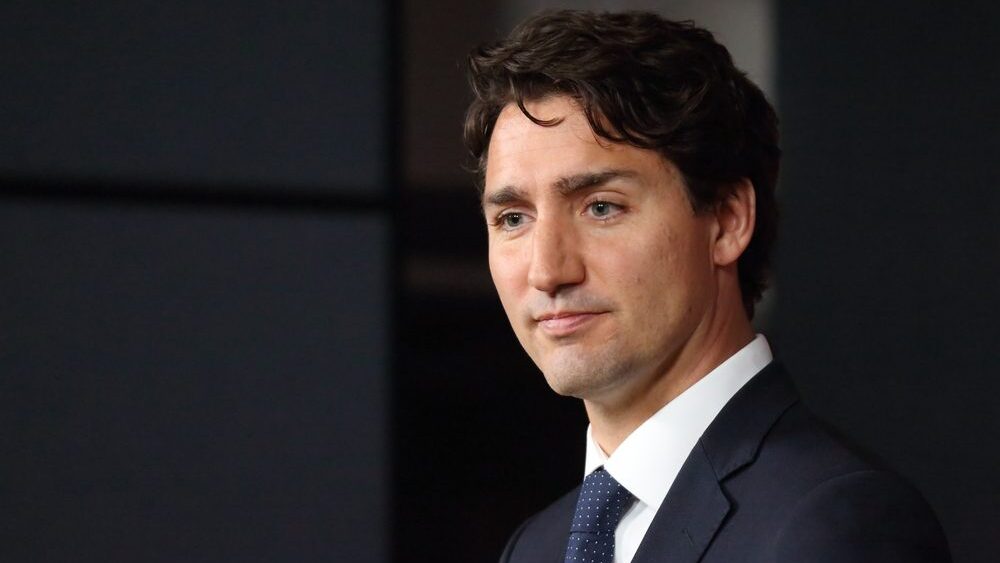Canadians want an end to the era of Prime Minister Justin Trudeau according to an increasing number of polls and a recent petition calling for a vote of non-confidence against his minority government in the Canadian House of Commons.
Signed by over 129,000 Canadians, petition e-4701 is sponsored by Conservative MP Michelle Ferreri, who represents the riding (district) of Peterborough-Kawartha, and calls for the House of Commons to vote on a non-confidence motion, that, if won, would see a snap federal election within 45 days.
The petition states:
The policies of this government aren’t aligning with the crisis Canada is facing: housing costs, infringement of civil liberties, highest inflation in history, unbalanced immigration policies, taxation to the point of poverty, weakening of our economy by importing natural resources that Canada already has and under-utilizes; and based on the past eight years of this Prime Minister, Canadians do not have confidence in this Prime Minister, after five ethics investigations and Canada’s reputation being tarnished on a global scale under his leadership. To the extent that Canada is being discluded from participating in statements regarding important geopolitical events.
The points made in the petition are not without merit as Canada has seen a massive housing crisis under Justin Trudeau and the average house price has skyrocketed.
The number of new homes being built has also been minuscule compared to the huge numbers of immigrants let into the country by Trudeau, with Canada’s population growing by a record one million people last year, almost all of the growth being driven by mass migration.
According to Statistics Canada, immigrants make up the largest share of the Canadian population in over 150 years, consisting of nearly a quarter of the entire population. The country of Canada is only 156 years old, being founded in 1867.
A poll released this week showed that three-quarters of Canadians blame mass migration for making the housing crisis worse and Trudeau’s Liberal Party intends to further increase the number of permanent residents from 437,180 in 2022 to at least 500,000 by 2025.
Canada Mortgage and Housing Corporation (CMHC), released a report in 2022 claiming that Canada would need to build 3.5 million additional units of housing by 2030 to get costs down but according to real estate banker Greg Kalil, it is unlikely the country can accomplish the task by even 2040 and it would require an investment of $2 trillion.
Inflation has also surged under Trudeau since the end of the COVID-19 pandemic in 2022, with inflation impacting Canadians so much that the number of people using food banks has soared to record levels.
In Canada’s most populous province, Ontario, an estimated 800,000 people used food banks between April of 2022 and March of 2023, up 38% from the previous year, the largest increase ever recorded.
Nearly one in five households in Ontario struggles to put food on the table, affecting roughly around 2.8 million people. Around 2.7 million households, or 6.9 million Canadians across the country are termed as “food insecure.”
On top of the housing crisis and inflation, the Trudeau government has enacted carbon taxes that even further increase the cost of living and the tax has become deeply unpopular with Canadians.
A poll released earlier this month revealed that the majority of Canadians want the carbon tax scrapped or at least postponed for up to three years to offset living costs, while just 15% agreed with the plan to further increase the tax next year.
Despite the growing problems, along with the litany of scandals that have plagued Trudeau’s premiership from corruption allegations to past photos of him donning blackface so many times he cannot recall them all, it is unlikely the confidence motion will pass in parliament.
James Carafano of the Heritage Foundation stated, “The prospects for a successful no-confidence vote are near zero,” citing the agreement between Trudeau’s Liberals and the far-left New Democrats (NDP).
Carafano stated:
You cannot force a no-confidence vote by petition no matter how many voters sign up. The only votes that count are those of MPs and as long as Prime Minister Trudeau’s Liberals have a confidence and supply agreement with the New Democratic Party (NDP) he can survive any confidence vote. This is a stunt to embarrass the Liberals and the NDP, without any prospect of success.
If, by chance, a confidence motion did bring down the Trudeau government, polls indicate that the Conservative Party of Canada (CPC) would win a snap election in a landslide, easily winning the majority of seats in the House of Commons.
A Nanos Research poll released on November 24th put the Tories at 41%, while Trudeau’s Liberals are now tied with the NDP at 22%, while an election outcome model put the Tories at a 96% chance of winning a majority.
The problem for opposition leader Pierre Poilievre, however, is that the next Canadian election is not scheduled until 2025, an incredibly long time in politics.







